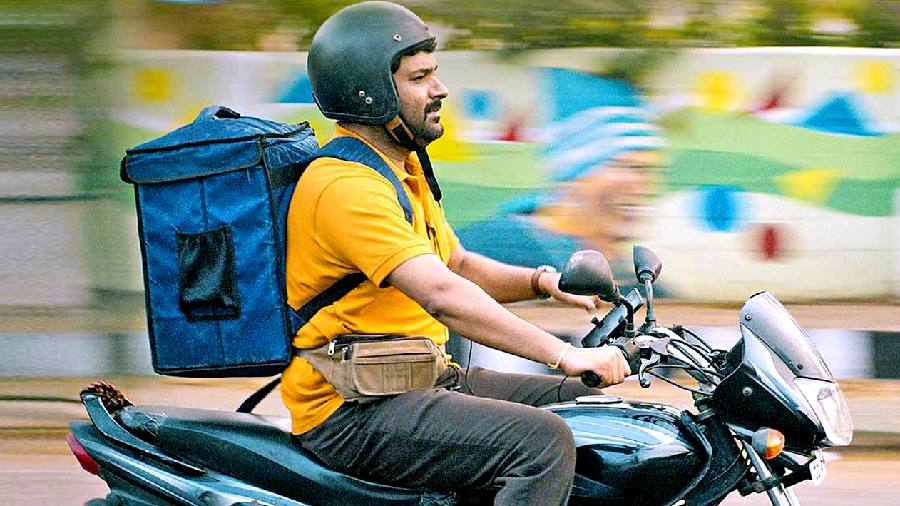Set in Bhubaneswar in the time of the Covid pandemic, Zwigato, directed and co-written by Nandita Das, has its heart in the right place. It tells the story of app food delivery partner Manas Singh Mahto (Kapil Sharma) who strives against odds to provide for his family. Returning to the big screen after a considerable hiatus, Kapil Sharma carries forward his role of the common man convincingly and effortlessly. His performance gives off the earthy rootedness of the aam aadmi and makes his portrayal of Manas relatable and realistic.
As the story unfolds, it lays bare the prejudices of a caste, class, religion and gender-divided society that became painfully prominent as the pandemic wreaked havoc on human lives irrespective of these biases. The divide between the haves and have-nots is depicted as a deep and ever-widening chasm, although the two groups co-exist in close proximity. The film attempts to highlight the plight of that section of the workforce who make the lives of the upper classes easy and comfortable and yet are looked upon with contempt, disdain and disrespect. It also touches upon the hazards of the ‘alternative gig’ economy born during the pandemic.
Manas’s job is clearly thankless. He is expected to work absurd hours and achieve impossible targets, but for low remuneration and respect. Workers like him are shown to be literally at the mercy of restaurants and customers, and often they fall victim to the flaws of the system. Manas’s frustration with his job is given a different and interesting dimension when his wife Pratima (beautifully played by Shahana Goswami) decides to support the family by taking up a job as cleaner in a local mall. As a husband and ‘provider’, Manas feels insecure and there is a moment of palpable tension between the two, who are otherwise portrayed as a happy couple. In fact, the film also tries to paint the picture of a contented family that accepts hardships with a smile.
Giving off the typical vibe of a low-budget indie film, the story proceeds at a sluggish pace. However, it often meanders and loses sight of its good intentions. Some situations, like Manas going to deliver food to the home of the principal of his daughter’s school or, a Muslim delivery person assigned to deliver food within the premises of a Hindu temple, appear strained and contrived. The political activism angle that is introduced in the latter part of the narrative also remained unclear as it had little to contribute to the fate of the protagonists.
What lifts the film is Pratima’s optimism, and her determination to make life better for the entire family. Initially hesitant about the ways of the world, she convinces her reluctant husband and is finally able to gain his support. Throughout the film, she is the invisible force that ensures that in spite of financial problems, their house remains a happy home. It is, in fact, because of Manas’s love for Pratima that this story of an app delivery man that borders dangerously close to becoming an emotional saga, reaches its abrupt, unexpected and cheerful ending.
Did you like/not like Zwigato?
Tell t2@abp.in











